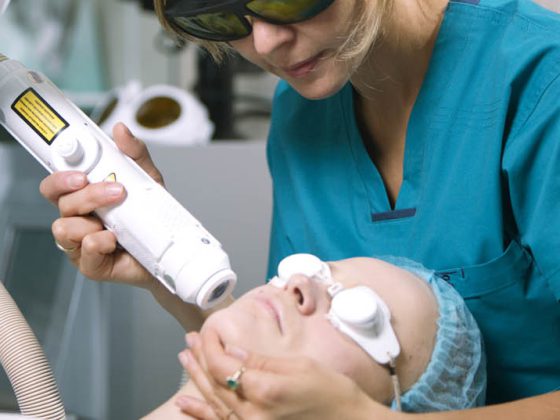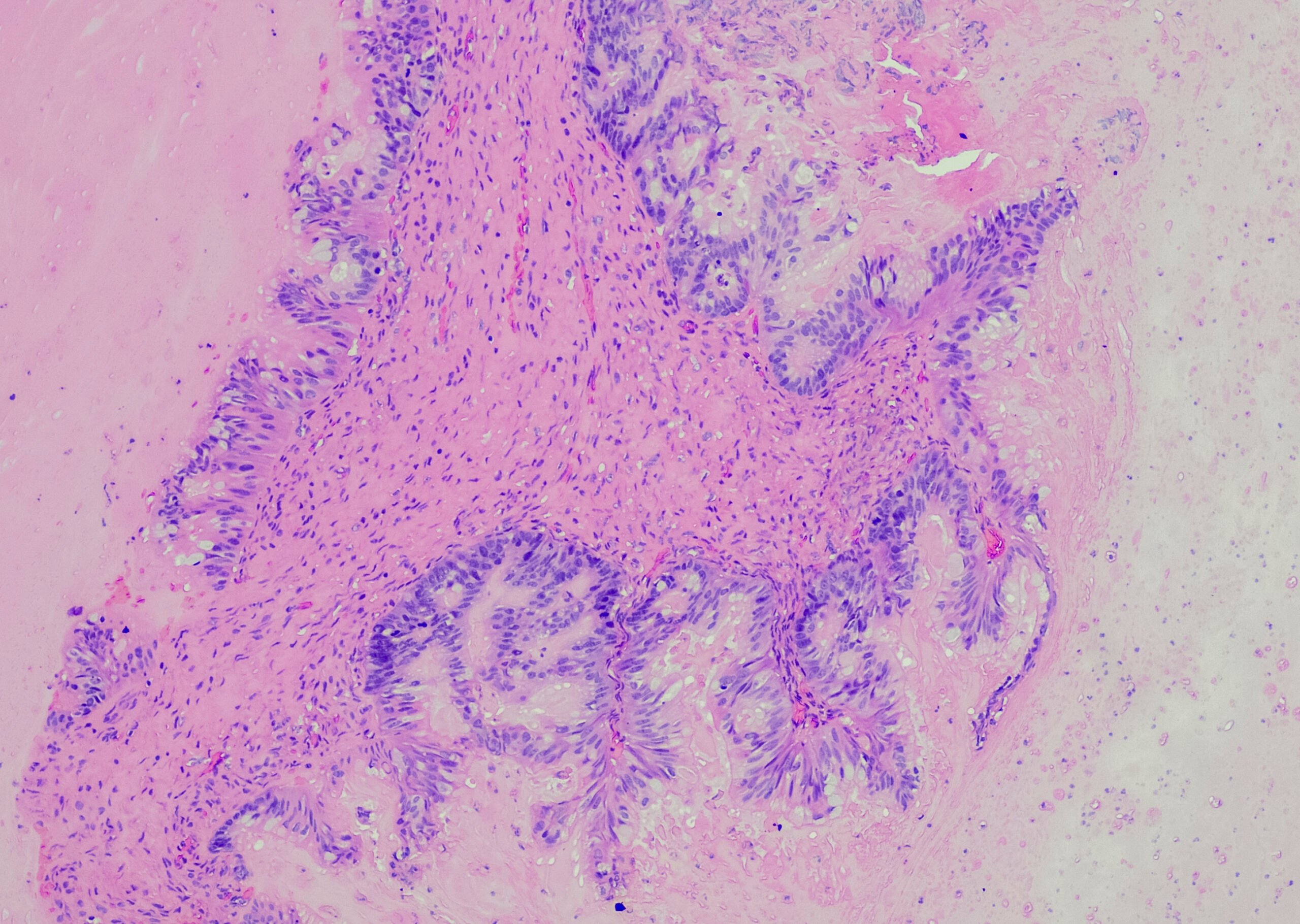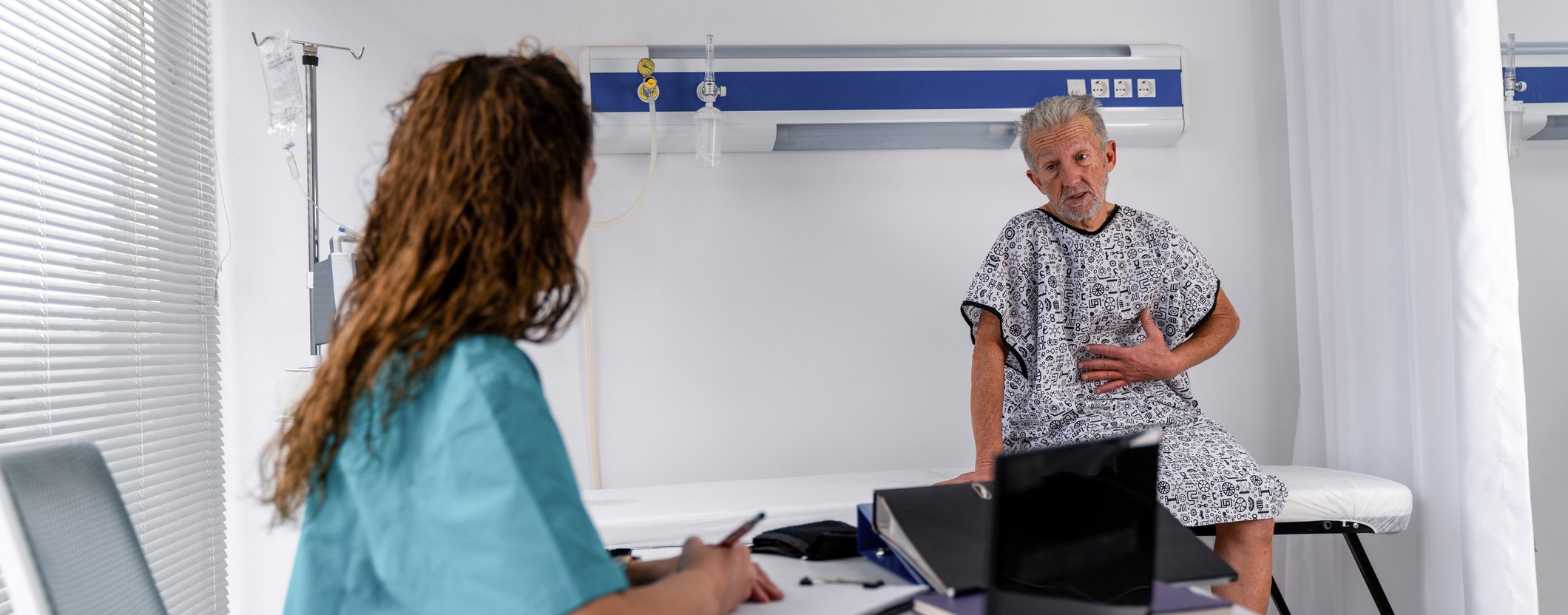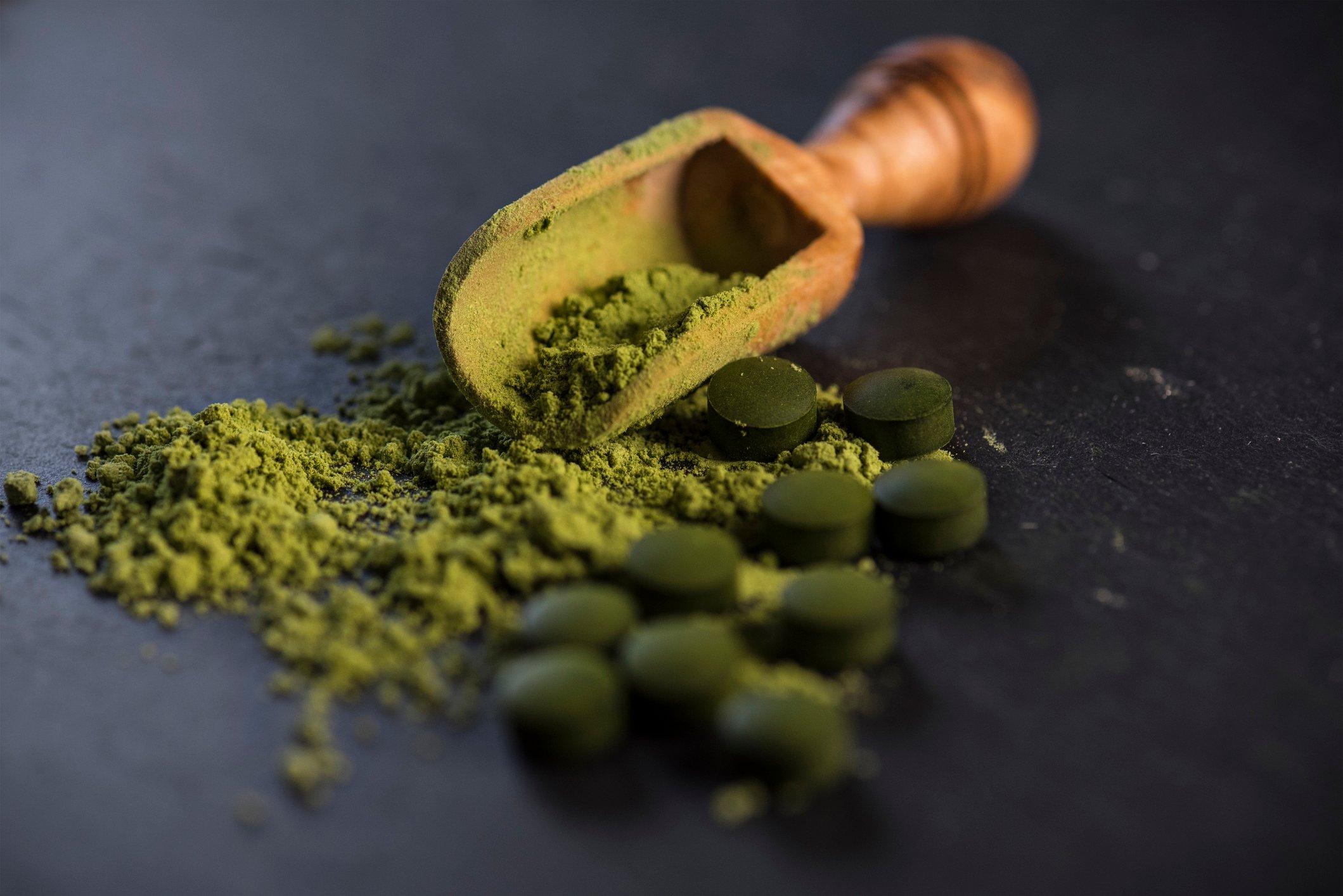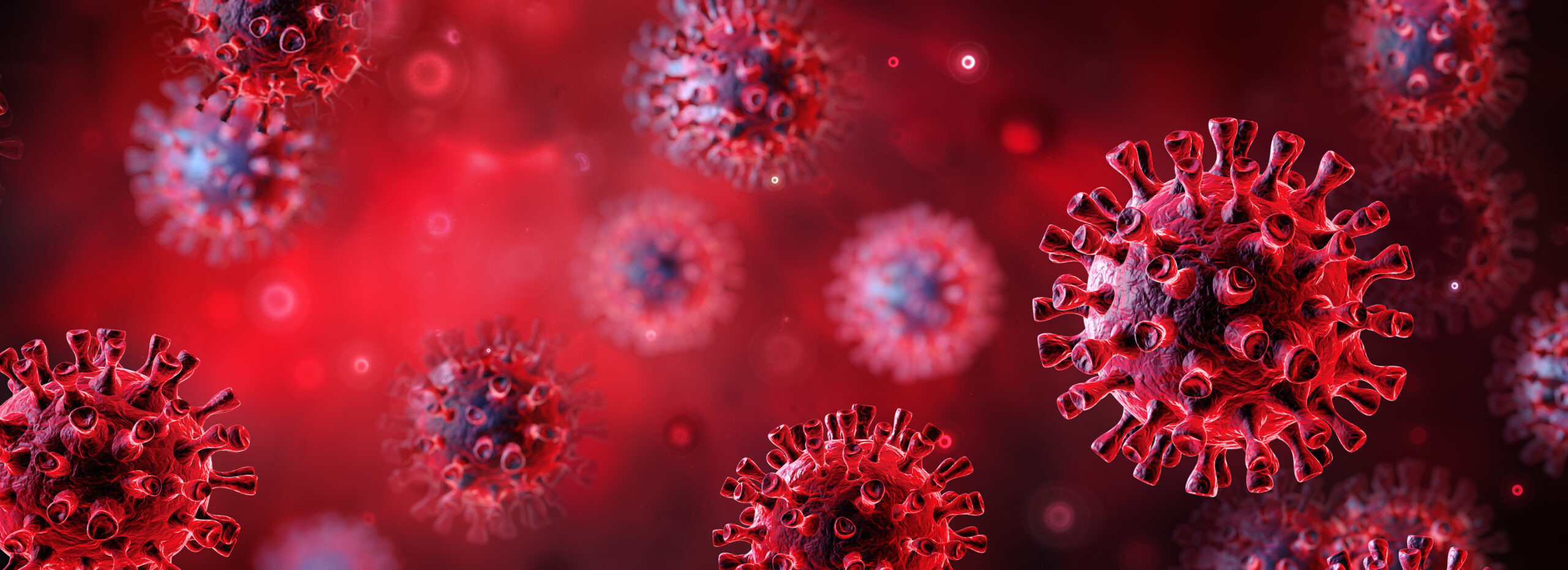Numerous new drug classes are currently in development, and the goal of individualized treatment of inflammatory bowel diseases with few side effects is approaching. Here, biomarkers play an important role and can provide clues as to which therapy is best suited for the respective patient. Prof. Dr. Raja Atreya, University Hospital Erlangen, spoke about some new forms of therapy.
Numerous new drug classes are currently in development, and the goal of individualized treatment of inflammatory bowel diseases with few side effects is approaching. Biomarkers are likely to take on an important role in the future in determining the most appropriate individual therapy choice. Prof. Dr. Raja Atreya, University Hospital Erlangen, Germany, spoke about some new forms of therapy.
Patients suffering from moderate to severe, active Crohn’s disease can now be treated with the anti-IL-12/23 monoclonal antibody ustekinumab in Switzerland. This is provided that the response to conventional therapies or to anti-TNF biologic therapy was previously insufficient or lost again, or that contraindications to these therapies exist or intolerance has been established. In the randomized double-blind placebo-controlled study UNITI-2, patients received a single intravenous dose of ustekinumab after failure of conventional therapies (immunosuppressants, glucocorticoids) [1]. At week 8, 40.2% were in clinical remission (Crohn’s Disease Activity Index [CDAI] score below 150). In the UNITI-1 trial of patients after primary or secondary nonresponse to anti-TNF biologics, fewer patients (20.9%) were in remission at week 8 [1]. Increased clinical efficacy in anti-TNF-naive patients was not only seen with ustekinumab, but with all therapeutic agents, the speaker said.
Therapies selectively directed against IL-23
The proinflammatory cytokines IL-12 and Il-23 are heterodimers, one subunit of which (p40) is present in both interleukins and is blocked by ustekinumab. The selective anti-IL-23 biologic risankizumab blocks p19, the other subunit of IL-23. A placebo-controlled induction study (phase 2) conducted with risankizumab in Crohn’s disease involved mostly (93%) patients who had been previously treated with anti-TNF antibodies (mostly with treatment failure) [2]. At week 12, 600 mg risankizumab (intravenously at weeks 0, 4, and 8) achieved clinical remission in 37% of mostly refractory patients (with placebo in 15%) [2]. Another selective IL-23 inhibitor (MEDI2070) achieved clinical remission at week 8 in anti-TNF-refractory patients with Crohn’s disease in 27% (placebo in 15%), the speaker said. While the clinical efficacy of IL-23 inhibitors has been established in anti-TNF-refractory patients, whose treatment is usually difficult, data on anti-IL-23 treatment in anti-TNF-naive patients are not yet available. It is possible that anti-IL-23 biologics may be even more effective in this patient population.
Small molecule oral inhibitors.
Binding of cytokines to their receptors leads to intracellular activation of Janus kinases (JAK1, 2, 3 and TYK2) with phosphorylation of transcription factors that activate target genes in the nucleus. An attractive treatment approach is to inhibit this target gene activation with JAK inhibitors (small molecule, oral, non-antigenic agents). JAK inhibitors can modulate the signaling pathways of multiple proinflammatory cytokines simultaneously. Currently, the most advanced is the JAK1/3 inhibitor tofacitinib. In three randomized, double-blind, placebo-controlled trials, tofacitinib was shown to be an effective induction and maintenance therapy in patients with moderate to severe, active ulcerative colitis [3]. But in Crohn’s disease, tofacitinib was not effective. This is not the case with the selective JAK1 inhibitor filgotinib, which has been shown to be very effective in Crohn’s disease. Thus, at week 10, remission was achieved in 47% of patients (with placebo in 23%) [4]. There were also data showing very good efficacy of filgotinib not only in anti-TNF-naive patients but also in anti-TNF-refractory patients, he said.
Inhibit homing of pathogenic T lymphocytes
The multistage migration of leukocytes out of the bloodstream and into the intestinal tissue plays an important role in the inflammatory response in the intestine. The homing process can be inhibited by targeting integrins (e.g., with vedolizumab, etrolizumab), chemokines, and sphingosine-1 phosphate receptors. Vedolizumab binds to the α4β7-integrin on T lymphocytes and selectively inhibits the adhesion of pathogenic lymphocytes to the adhesion molecule MAdCAM1 in the gut. This mechanism of action represents a very efficient way to influence the inflammatory response, the speaker said. Treatment with vedolizumab is used in moderately to highly active inflammatory bowel disease (ulcerative colitis and Crohn’s disease) when patients have not responded adequately or have stopped responding to standard therapy or an anti-TNF biologic. Additional treatment options are currently being tested that build on the highly successful anti-integrin mechanism of action and target the T-cell homing process (e.g., the anti-β7-integrin antibody etrolizumab and the anti-MAdCAM1 antibody PF-00547659).
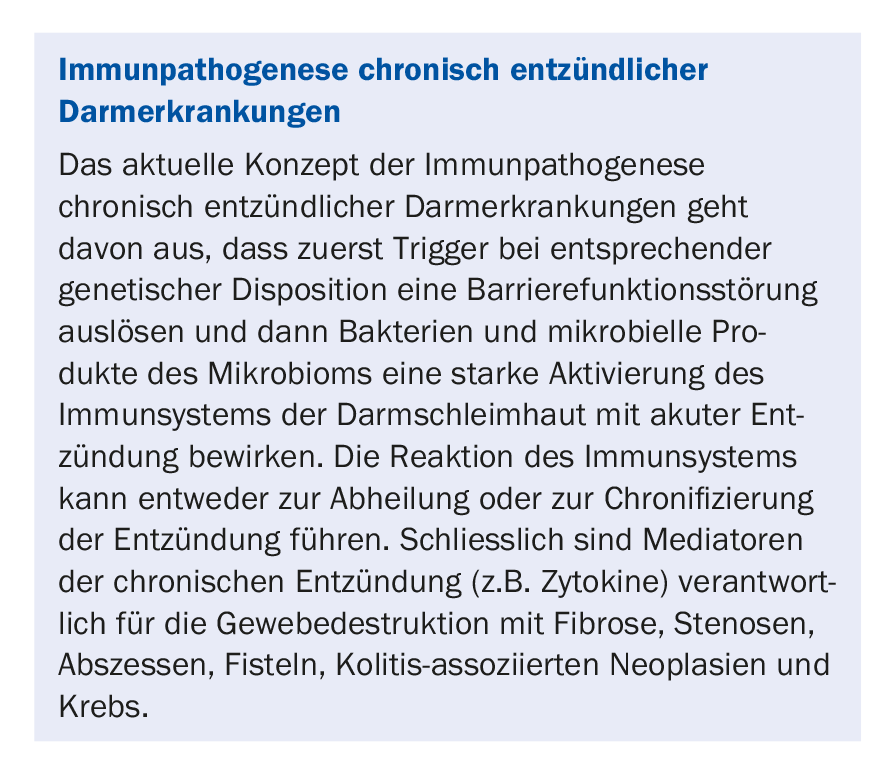
Successful fistula therapy with mesenchymal stem cells
In patients with Crohn’s disease, perianal fistulas present a difficult therapeutic challenge in practice. When fistulas are refractory to conventional therapies, innovative mesenchymal stem cell therapy may be helpful. In a large, randomized, placebo-controlled trial, a single intralesional injection treatment with a total of 120 million allogeneic adipose-derived mesenchymal stem cells resulted in remission in more than half of the patients (51.5%) after 24 weeks (closure of all external fistula openings and no abscess of more than 2 cm diameter) [5]. In this study, the internal fistula openings were first surgically closed and then 60 million stem cells were injected into the tissue around the closed internal fistula openings and 60 million stem cells were injected along the fistula tracts.
Source: presentation “New drugs” at the symposium “IBD: What’s new in 2017?”, 25th UEGweek, Barcelona, November 1, 2017.
Literature:
- Feagan BG, et al: Ustekinumab as induction and maintenance therapy for Crohn’s disease. N Engl J Med 2016; 375: 1946-1960.
- Feagan BG, et al: Induction therapy with the selective interleukin-23 inhibitor risankizumab in patients with
- moderate-to-severe Crohn’s disease: a randomised, double-blind, placebo-controlled phase 2 study. Lancet 2017; 389: 1699-1709.
- Sandborn WJ, et al: Tofacitinib as induction and maintenance therapy for ulcerative colitis. N Engl J Med 2017; 376: 1723-1736.
- Vermeire S, et al: Clinical remission in patients with moderate-to-severe Crohn’s disease treated with filgotinib (the FITZROY study). Lancet 2017; 389: 266-275.
- Panés J, et al: Expanded allogeneic adipose-derived mesenchymal stem cells (Cx601) for complex perianal fistulas in Crohn’s disease: a phase 3 randomised, double-blind controlled trial. Lancet 2016; 388: 1281-1290.
HAUSARZT PRAXIS 2017; 12(12): 35-36


